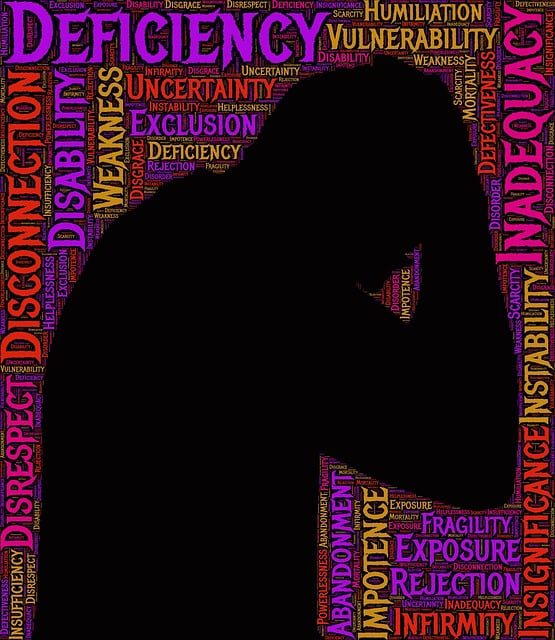Wheat Ridge Psychological Testing & Therapy (WRPTT) prioritizes cultural competency in healthcare delivery, understanding that patients' diverse backgrounds impact health behaviors and preferences. They offer specialized training programs focusing on self-awareness, resilience, and bias recognition to help mental health professionals adapt communication strategies for inclusive environments. WRPTT's comprehensive approach includes evidence-based practices, role-playing, case studies, and Inner Strength Development, improving patient outcomes and cultural sensitivity in depression prevention among diverse populations. Their evaluation methods track patient outcomes, social skills, self-care routines, provider retention, and satisfaction to measure the effectiveness of their cultural competency initiatives.
Healthcare provider cultural competency training is an essential pillar in delivering quality care. In a diverse society, understanding cultural nuances and avoiding biases are crucial to ensuring patient satisfaction and positive outcomes. This article explores these aspects through a lens provided by Wheat Ridge Psychological Testing Therapy, offering strategies for training, communication, and measuring success. By delving into these topics, we aim to highlight the impact of cultural competency on healthcare delivery.
- Understanding Cultural Competency in Healthcare: A Necessity for Quality Care
- The Impact of Cultural Biases and Stereotypes on Patient Outcomes
- Wheat Ridge Psychological Testing Therapy: A Framework for Training
- Effective Communication Strategies for Healthcare Providers
- Measuring and Evaluating Cultural Competency Programs' Success
Understanding Cultural Competency in Healthcare: A Necessity for Quality Care

In today’s diverse healthcare landscape, cultural competency is no longer an optional consideration; it’s a necessity for delivering quality care. This concept refers to the ability of healthcare providers to understand and appreciate the cultural backgrounds, beliefs, and values of their patients, which significantly influences their health behaviors and preferences. Given that Wheat Ridge Psychological Testing Therapy caters to a broad range of individuals from various cultural contexts, cultivating cultural competency is paramount. By embracing this approach, our team ensures that every patient receives personalized care tailored to their unique needs, fostering trust, understanding, and ultimately, better health outcomes.
Cultural competency involves more than just surface-level awareness; it requires self-awareness exercises, resilience building, and coping skills development among healthcare providers. Our services at Wheat Ridge Psychological Testing Therapy are designed to facilitate these aspects through specialized training programs. We equip our staff with the tools needed to navigate cultural differences effectively, recognize potential biases, and adapt their communication strategies accordingly. This commitment to cultural competency is not just about ethical practice; it’s a key driver in enhancing patient satisfaction, improving health outcomes, and creating a more inclusive healthcare environment.
The Impact of Cultural Biases and Stereotypes on Patient Outcomes

Cultural biases and stereotypes can significantly impact patient outcomes within healthcare settings, particularly when unaddressed. These preconceived notions, often rooted in societal norms, can lead to miscommunications and misunderstandings between patients and providers. For instance, a mental health professional with cultural biases might unintentionally stereotype a patient based on their ethnicity or religious beliefs, affecting the level of care and support offered. This can result in delayed diagnoses, inadequate treatment plans, and even harm patient trust and engagement in their emotional healing processes.
At Wheat Ridge Psychological Testing & Therapy, we recognize that navigating these cultural complexities is crucial for effective care. Our organization offers specialized training programs, such as stress management workshops and risk management planning for mental health professionals, designed to help providers recognize and overcome these biases. By fostering a culture of competency, we aim to ensure every patient receives personalized care that respects their unique background, promoting positive outcomes and strengthening the therapeutic bond between provider and client.
Wheat Ridge Psychological Testing Therapy: A Framework for Training

Wheat Ridge Psychological Testing Therapy offers a comprehensive framework for healthcare provider cultural competency training. This approach emphasizes understanding and addressing psychological aspects of diverse communities, focusing on mental health challenges and strengths. By employing evidence-based practices and Mind Over Matter principles, the program equips providers with essential tools to navigate complex cultural landscapes.
The curriculum incorporates effective communication strategies tailored to various ethnic, racial, and socioeconomic backgrounds. Through role-playing scenarios and case studies, participants learn how to create safe, inclusive spaces that foster trust and encourage open dialogue. This training not only enhances patient outcomes but also promotes better depression prevention within diverse populations, ultimately reflecting improved cultural competency in healthcare delivery.
Effective Communication Strategies for Healthcare Providers

Effective communication is a cornerstone of quality healthcare delivery. For providers at Wheat Ridge Psychological Testing & Therapy, mastering this skillset means embracing strategies that bridge cultural gaps and foster trust. Inner Strength Development and Self-Esteem Improvement are not just therapeutic goals; they are key to establishing open dialogue with diverse patient populations. By integrating Cultural Sensitivity in Mental Healthcare Practice, healthcare providers can create a safe, inclusive environment where every patient feels heard and respected. This involves actively listening, validating experiences, and using culturally appropriate language—all essential elements for building strong, meaningful connections that enhance treatment outcomes.
Measuring and Evaluating Cultural Competency Programs' Success

Evaluating the success of cultural competency training programs is a multifaceted process that goes beyond mere satisfaction surveys. At Wheat Ridge Psychological Testing & Therapy, we believe in quantifying impact through a comprehensive approach. This includes tracking changes in patient outcomes, such as improved access to care, enhanced communication between providers and diverse patients, and reduced instances of miscommunication or mistrust.
Social Skills Training and Self-Care Routine Development for Better Mental Health are key areas where success can be measured. By assessing these factors alongside traditional metrics like provider retention rates and patient satisfaction scores, Wheat Ridge Psychological Testing & Therapy ensures that our cultural competency programs align with the Mind Over Matter principles of fostering inclusive, effective healthcare environments.
Healthcare provider cultural competency training, grounded in frameworks like Wheat Ridge Psychological Testing Therapy, is indispensable for delivering quality care. By addressing biases and stereotypes, implementing effective communication strategies, and rigorously evaluating programs, healthcare organizations can ensure diverse patient populations receive the best possible outcomes. This holistic approach not only improves individual lives but also fosters a more equitable healthcare system overall.














